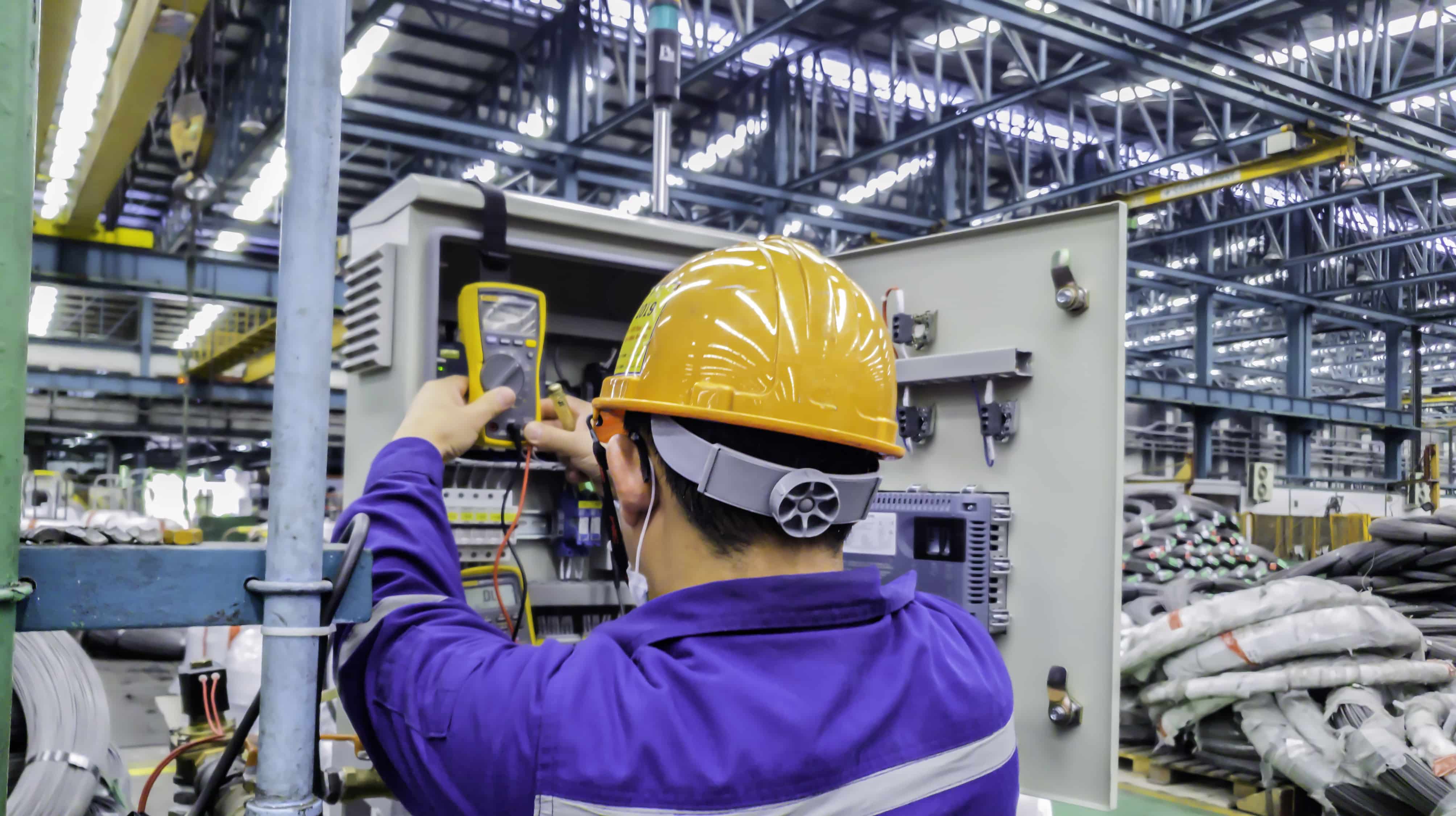Industrial Electrician or Commercial Electrician
You might see the terms industrial electrician and commercial electrician everywhere. But what do they mean and which one do you need to hire? There can be a ton of confusion when it comes to different types of electricians. ? While the two titles may sound similar, they are actually very different. The foundation of the skill set might be in basic electrical knowledge, but the application of their extended training is truly what draws the lines between the two.
P.S. If you’re interested in learning more about why joining the trades is a great idea, we have the information you need here! Or if you’re interested in learning more about the different trades, we’ve broken that down for you too!
Residential Electrician
Let’s start by defining the residential electrician. A residential electrician must obtain a high school diploma, engage in an apprenticeship program. As well as attend classes, accumulate 8,000-10,000 hours of job experience and pass a competency exam. Eventually to then become licensed to perform their qualified work. Typically, a residential electrician works with single phase power supplies which are 120 or 240 volts.
A residential electrician works in homes and apartments. The essential tasks and daily pressures of being a residential electrician typically involve common electrical repairs, wiring newly constructed homes, installing lighting and fixtures, and general home electrical requirements.
Commercial Electrician
Commercial electricians must obtain a high school diploma, engage in an apprenticeship program. As well as attend classes, accumulate 8,000-10,000 hours of job experience and pass a competency exam. Similarly to its residential counterpart. Typically a commercial electrician is performing new construction or installing lighting, receptacles, transformers, and some power distribution.
A commercial electrician typically works in commercial buildings, like business offices, retail stores, restaurants and other areas that are readily accessible by the public. The essential tasks and daily pressures of being a commercial electrician typically involve common electrical repairs and installation of specific equipment. In many cases, the electricians are wiring breaker panels, transformers, generators, lighting, heating and general building requirements.
Industrial Electrician
Industrial electricians must obtain a high school diploma and engage in an apprenticeship program. As well as attend classes, accumulate 8,000-10,000 hours of job experience and pass a competency exam. Likewise, same as its residential and commercial brothers.
Typical experience for an industrial electrician is the installation of process equipment that requires specific knowledge of the manufacturing industry. Wiring in a food processing plant uses different procedures than wiring in a automotive production facility. Understanding the differences in each of the industries is critical for an industrial electrician. A more advanced industrial electrician will be strongly involved in the control wiring and operation of process equipment.
An industrial electrician typically works in plants and production facilities with complex, sensitive and expensive machinery and electrical systems. Manufacturing and production facilities have power needs that are far different from the general needs encountered in other avenues of the electrical profession. Many of the industries we work within are pharmaceutical, food processing, chemical, mining, and automotive.
Secondly, an industrial electrician understands and respects the safety procedures of each plant. For instance, food manufacturing plants require their employees to be HACCP certified to meet food safety and quality. An industrial electrician may already be equipped with a HACCP certification or is current with its protocols. Another key point is the industrial electrician understands the importance to keep a production downtime to a absolute minimum. Therefore, he perform specific tasks or will possess special equipment for the job. Such as thermal imaging and arc flash analysis.
Industrial electricians maintain a more extensive range of electrical systems, from micro-currents to high voltage components.
Typical jobs are:
- Installing electrical systems and components for the manufacturing industry’s process equipment.
- Troubleshooting motor controls and electronics
- Loading dock controls
- Performing inspections on machinery and equipment within the industrial-based structure.
- Ensuring the proper installation of power conductors to reduce interference with the control systems.
- Ensuring the proper grounding of manufacturing systems and equipment.
- Regular maintenance and repair of electrical systems and components.
Conclusion
While on paper a residential, commercial and industrial electrician may appear to be the same or similar. The competencies of each are vastly different. The knowledge bases of residential, industrial and commercial electricians allow them to specialize in three vastly different and equally essential areas of electrical work. Making sure to choose the right electrician to service your facility is essential. Thus to provide the work efficiently and properly. Most importantly, the contractor resects the facility’s safety protocols and production.
COBO Electric is made up entirely of qualified, well-trained and hard-working industrial electricians. With this purpose in mind we are all HACCP certified to reduce any delays of entering a food production plant.
If you need a team of industrial electricians for your facility, give us a call anytime. In fact, we have a 24/7 Emergency Service.

